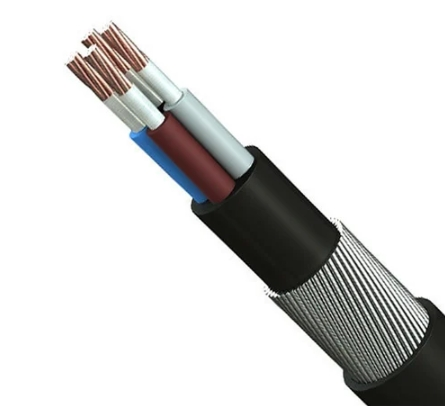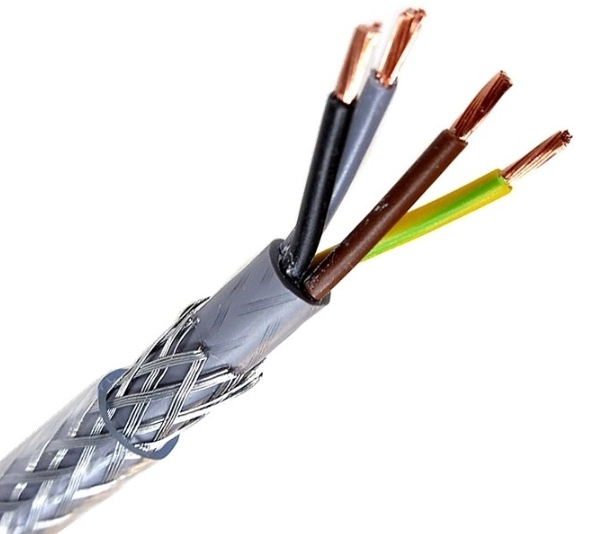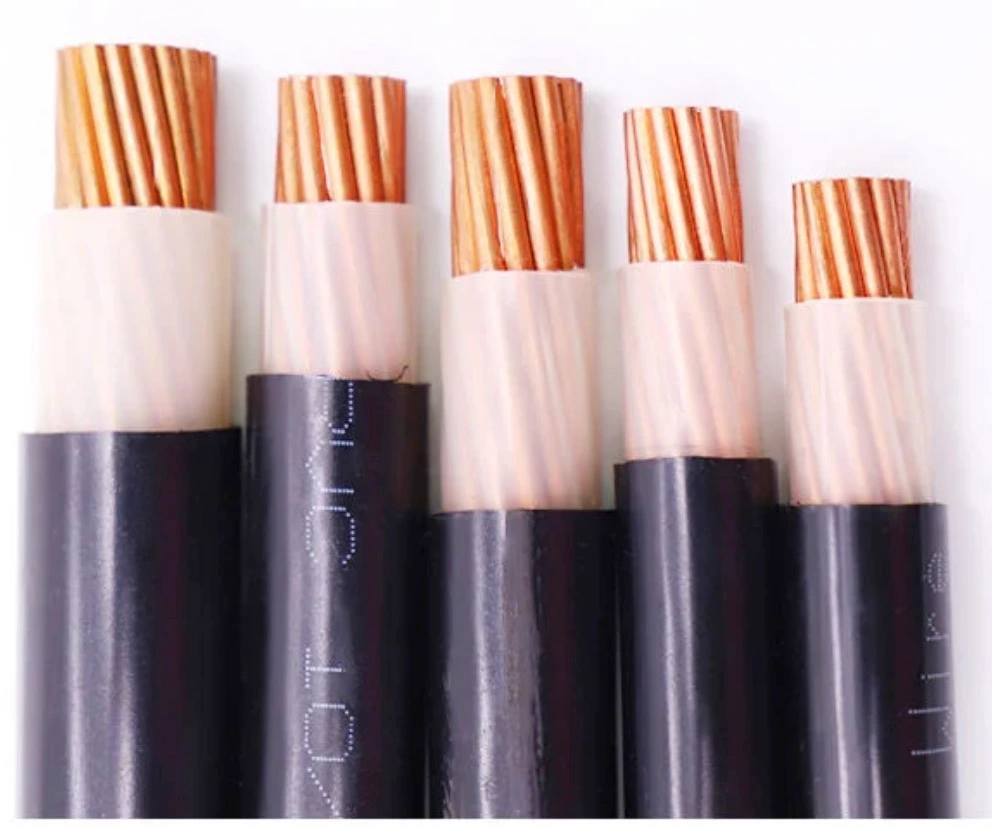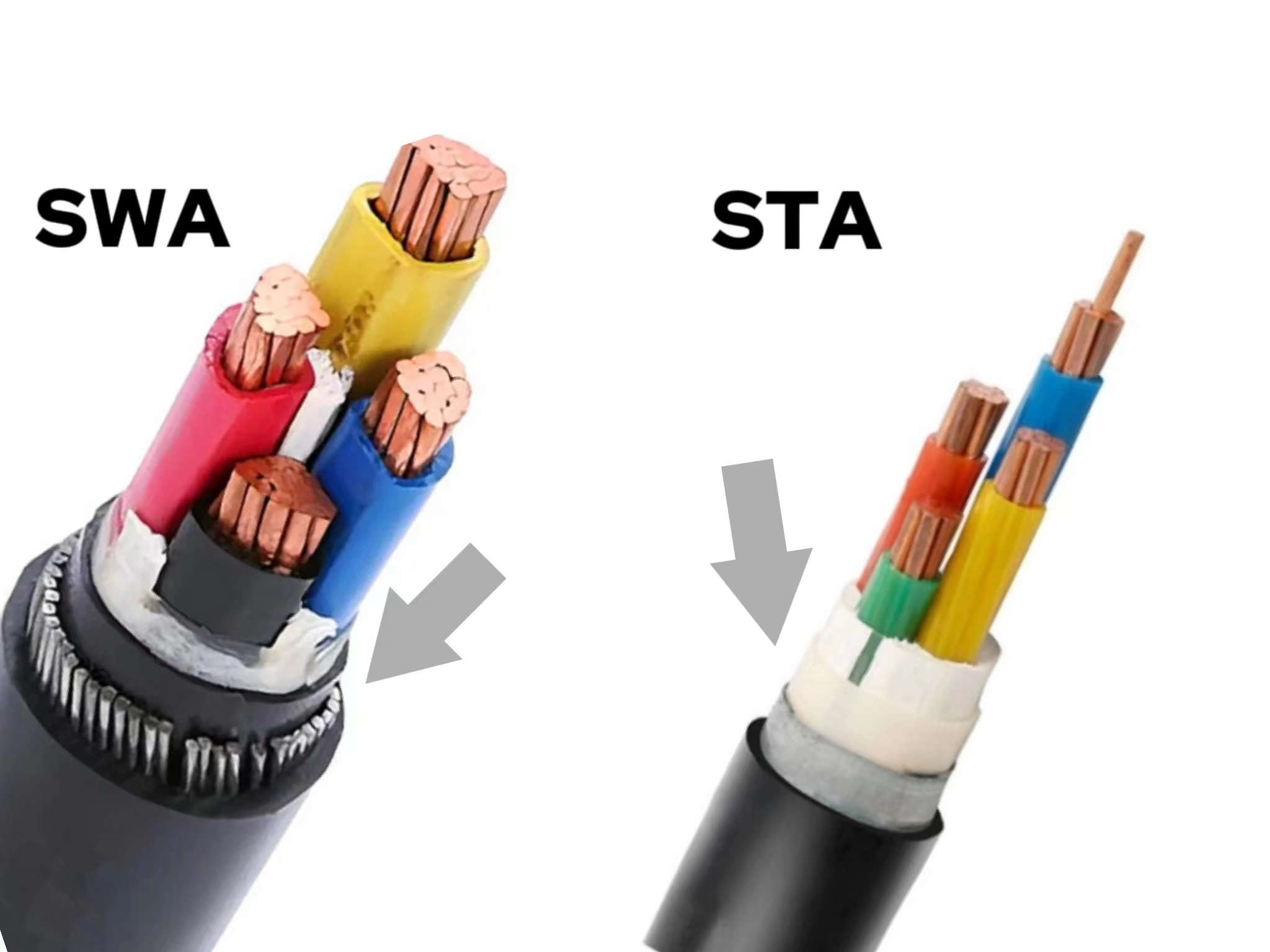YJV cables are recognized as the most widely used type in the cable industry. YJV cables specifications are available to meet exacting standards in a variety of areas such as residential or underground applications. In the quest for a reliable power supply and an efficient electrical infrastructure, YJV power cables are the foundation of quality assurance. From the most basic concepts to common cable comparisons, please follow our footsteps into the various aspects of yjv cable.
What is the meaning of YJV cable?
“YJV cable” specifically means a type of insulated cable. The cable is widely recognized for its excellent performance in electrical installations. “YJ” stands for cross-linked polyethylene (XLPE) insulation, while “V” indicates that the cable has a polyvinyl chloride (PVC) sheath. This pairing delivers superior electrical insulation, alongside robust resistance to heat, chemicals, and fire.
YJV power cable is meticulously designed with three key components: the conductor, insulation, and sheath. The conductor at its core is made of high quality copper. The conductor is wrapped in cross-linked polyethylene (XLPE) insulation, which guarantees superior protection and performance.The outer layer is the PVC sheath of the YJV cable, which provides strong protection against environmental stresses.
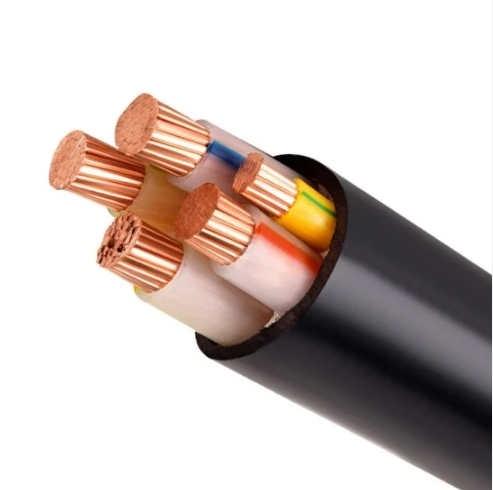
YJV Cable Features and advantages
Highlighting the YJV cable meaning , it’s imperative to understand the technical specifications that cater to its exceptional performance. Each feature is crafted to keep reliability, longevity, and efficiency in power distribution. Here are some basic features:
- Voltage: YJV wires operate efficiently over a wide voltage range. Commonly varying from low voltage applications (0.6/1kV) to medium voltage (up to 35kV), YJV cables offer remarkable versatility. This attribute enables their use in diverse settings, from residential complexes to industrial facilities.
- Temperature: A standout characteristic of YJV insulated power cables is their exceptional durability under extreme temperature conditions. YJV electric cables maintain stable performance over a temperature range of -20°C to +90°C. Consequently, they are well suited for use in harsh climates and environments with large temperature fluctuations.
- Thermal and Chemical Resistance: YJV cables feature insulation made from XLPE and are encased in PVC jackets. XLPE cable insulation has excellent thermal stability. It provides cable integrity and performance even at high temperatures. In addition, the PVC jacket is resistant to a wide range of chemicals, which greatly extends the life of the cable.
When exploring the Advantages of YJV Cables, we examine the significant benefits these attributes offer.
Advantages of YJV Cables
- Enhanced Safety: Due to their superior fire resistance and insulation properties, YJV cables significantly reduce the risk of fire hazards and electrical accidents.
- Cost-Effective: The copper in YJV cables has very low power loss and excellent electrical conductivity. It improves the efficiency of the power distribution system and thus reduces operating costs.
- Long Service Life: Durable design and adaptability to environmental factors promise long service life while minimizing the frequency of replacement and maintenance.
- Environmental Resistance: Whatever the installation conditions, they can withstand environmental stresses and give consistent performance.
Applications of yjv cable
- YJV XLPE insulated power cables are first widely used in the industrial field. Its rugged construction makes it excellent for severe industrial environments and are able to withstand extreme temperatures, chemicals, and mechanical stress. In industry, power plants and mining activities, continuous power supply and communication signals from cables are very important. Downtime due to cable failures is greatly reduced.
- In addition, in commercial buildings such as offices, shopping centers and hotels, YJV 0.6 1kv cables play a vital role in power distribution and infrastructure networking. Their fire resistance and excellent insulation properties meet stringent safety standards, ensuring a safe environment for employees and customers.
- For residential electrical systems, the versatility and durability of YJV wires make them the preferred choice. They meet the needs of modern homes, providing safe and efficient power delivery and supporting smart home technology. the environmental resistance of YJV electrical cables also means they can withstand outdoor or exposed environmental conditions, ensuring longevity and reliability.
What is the difference between YJV and YJV-22 cables?
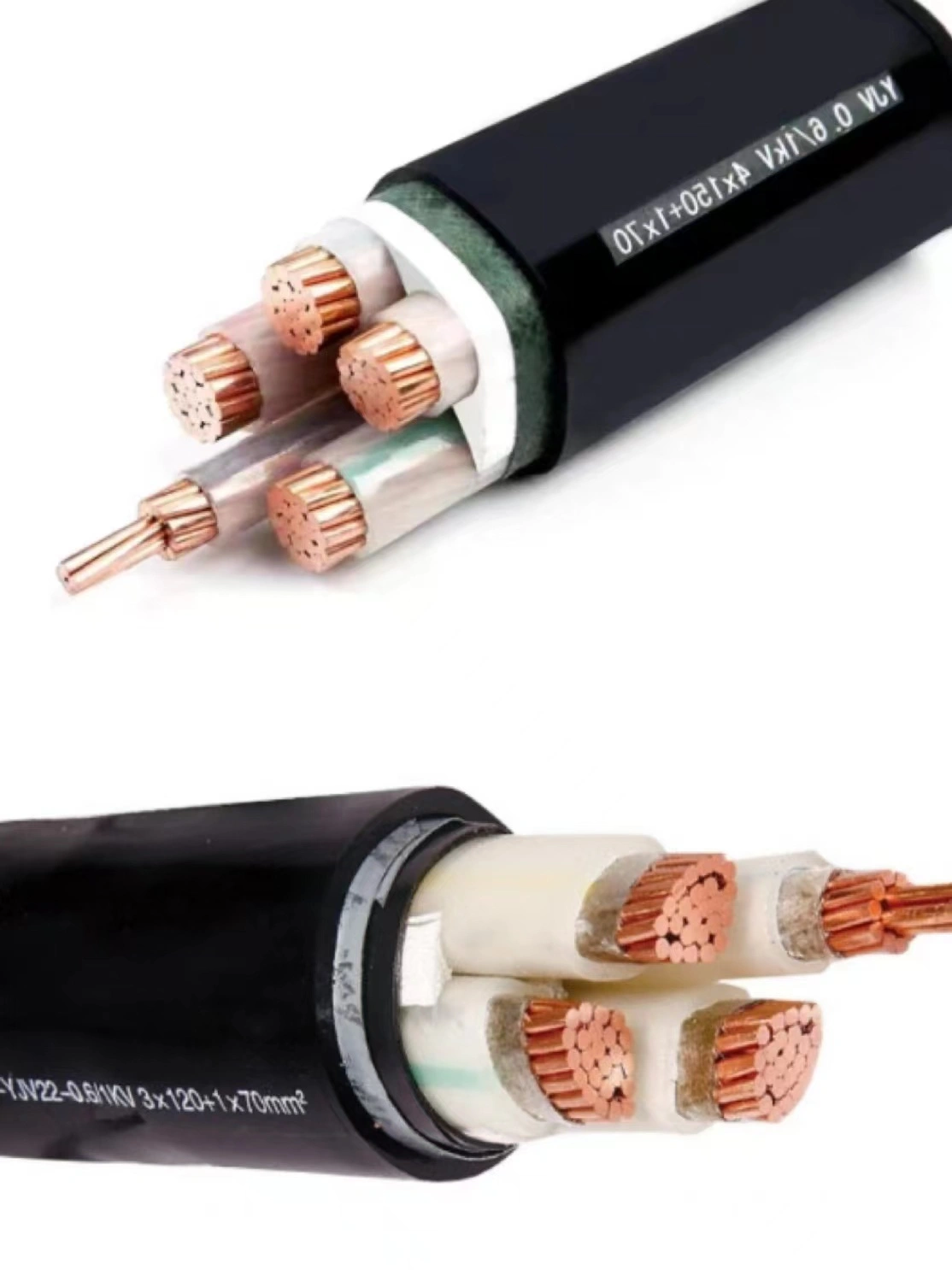
Assume an electrical contractor is tasked with developing a power distribution system for a large industrial park. The decision to use YJV or YJV-22 cables relates to the lifetime and overall cost of the project. For example, if the cables are to be used underground, we can choose YJV22 cables, whereas if the cables are to be installed in cable tray, then yjv cables would be suitable. Below we can learn about the other differences:
Structure and application:
YJV cables are made of cross-linked polyethylene (XLPE) insulation and PVC sheaths. yjv is suitable for indoor use with very low risk of mechanical damage. yjv-22 cables have a metal armor in addition to the same insulation and sheath. This makes it ideal for underground or external installations that are susceptible to mechanical stress.
Resistance and protection:
YJV cables have excellent electrical insulation, mechanical protection and environmental resistance. It is well suited for environments with low physical requirements. YJV-22 cable is armored with steel tape. It has excellent resistance to impact and extrusion and is suitable for industrial environments and areas with physical disturbances.
Selection Criteria:
The choice between YJV and YJV-22 cables depends on environmental conditions and mechanical stress; YJV cables are best suited for protected indoor environments, while YJV-22 cables are suitable for outdoor or underground environments where the risk of physical damage is high.
YJV Cable Conclusion
An explanation of the field of YJV cables reveals their importance in a variety of environments, from residential to industrial applications. We dissect the structure, applications, and key differences between yjv cables and yjv22. We believe we have come to this point with a clearer understanding of cable selection. In the meantime, if you want to go further to get a comprehensive cable solution or obtain yjv series cables price, ZW Cable manufacturer offers you a way to get quality products and services.
FAQs
What is a 600/1000v cable?
IEC 60502 600/1000V XLPE insulated PVC sheathed unarmored power cables play an important role in the infrastructure of modern society. These cables are used in a wide range of applications, mainly in environments where high reliability and safety are required. They are widely used in power stations, large underground passenger transportation systems and high-rise buildings.
The difference between YJV cable and RVV cable
- RVV cables are also known as copper core PVC insulated and sheathed flexible cables. It is designed for applications requiring 300/500V voltage rating. On the other hand, YJV cables stand for copper core XLPE insulated PVC sheathed power cables. It is suitable for a wider range of voltage levels. It is suitable for low voltage applications from 0.6/1kV up to medium voltage levels from 6/10kV to 26/35kV.
- RVV cables are constructed using plastic materials, whereas YJV cables utilize cross-linked polyethylene to enhance their insulation capabilities, which surpasses the insulation performance of RVV cables. YJV cables are more suitable for environments subjected to heat. Unlike RVV cables, they do not undergo this cross-linking process and are therefore less heat resistant.
- YJV cables are great for high-capacity power distribution in industrial and residential environments, while RVV cables are best suited for flexible applications requiring durability at lower voltages.


